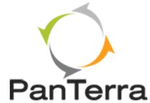Description

Calibre

XenCALL
Comprehensive Overview: Calibre vs XenCALL
Calibre and XenCALL are two distinct software products catering to different markets and user needs. Below is a comprehensive overview of each:
Calibre
a) Primary Functions and Target Markets
Calibre is an open-source eBook management tool. Its primary functions include:
- Organizing eBooks: Users can catalog their eBooks with detailed metadata and sort them into custom collections.
- Conversion: Calibre supports a wide range of eBook formats and allows users to convert eBooks from one format to another.
- Synchronization: Users can sync their eBook libraries with various eReaders.
- Editing: It offers tools for editing eBook content and metadata.
- Library Sharing: Users can share their eBook libraries with others over the internet.
Target Market: Calibre is targeted towards individual users, authors, and librarians who need a comprehensive tool for managing eBook collections. It appeals particularly to avid readers and those involved in content creation and editing.
b) Market Share and User Base
Calibre is widely popular among individuals and small organizations that manage eBooks. Being open-source and free, its exact market share is difficult to quantify. However, its popularity is substantial given its long-standing presence in the eBook management space and its active community.
c) Key Differentiating Factors
- Open Source: Calibre is free to use and allows users to modify the software.
- Versatile Format Support: It supports an extensive array of formats and conversion options.
- Community-Driven Development: Regular updates and plugins extend functionality, driven by a committed user community.
XenCALL
a) Primary Functions and Target Markets
XenCALL is a cloud-based predictive dialer and CRM platform designed for call centers. Its primary functions include:
- Automated Dialing: XenCALL employs predictive dialing to maximize agent efficiency.
- CRM Integration: It features built-in CRM capabilities for managing customer interactions.
- Reporting and Analytics: Provides real-time analytics to track performance and optimize processes.
- VoIP Calling: Integrates VoIP services for streamlined communication.
Target Market: XenCALL is aimed at call centers, sales teams, and telemarketing operations looking to optimize outbound calling and customer relationship management.
b) Market Share and User Base
XenCALL competes in the niche market of call center solutions. While not as prominent as giants like Salesforce or HubSpot in the broader CRM category, it holds a respectable position in the predictive dialing space due to its tailored features for call centers.
c) Key Differentiating Factors
- Predictive Dialing: Optimizes calling efficiency by dialing multiple numbers and connecting answered calls to agents.
- Integrated CRM: Combines dialing with customer management within a single platform.
- Industry Focus: Specifically designed for call centers and telemarketing, offering features crucial for these operations.
Comparison Overview
- Functionality: Calibre is focused on eBook management, while XenCALL is a call center solution. Their functionalities cater to entirely different needs and industries.
- Target Markets: Calibre caters to eBook users, while XenCALL targets call centers and sales operations.
- Business Model: Calibre is open-source and free, making it widely accessible. XenCALL is typically subscription-based, focusing on providing business solutions to enterprises.
- Community and Development: Calibre benefits from an open-source community, whereas XenCALL is developed by a company focused on the call center industry.
Both products succeed by effectively catering to their respective markets but are not direct competitors given their disparate purposes and user bases.
Contact Info

Year founded :
2014
Not Available
Not Available
United Kingdom
Not Available

Year founded :
2014
+1 800-694-1049
Not Available
Canada
Not Available
Feature Similarity Breakdown: Calibre, XenCALL
Calibre and XenCALL are both software solutions, but they serve different primary purposes. Calibre is primarily known as an e-book management tool, while XenCALL is a cloud-based call center software solution. Despite their differences, we can compare them with a focus on shared technological features, interface design principles, and unique features.
a) Core Features in Common
Though their primary purposes differ, Calibre and XenCALL may share some general software features:
- User Management: Both platforms require some form of user management, including account creation and role-based access controls, to ensure security and personalization in user interaction.
- Customization Options: Both software solutions allow users to customize various settings to tailor the tools to their specific needs. Calibre allows customization of e-book metadata, views, and formats, while XenCALL allows customization of call scripts and workflows.
- Data Management: Both applications involve handling significant amounts of data, whether it be customer information for XenCALL or book metadata for Calibre.
- Cross-Platform Support: Both software products offer support across multiple operating systems (Windows, macOS, Linux for Calibre and web-based access for XenCALL).
b) User Interface Comparison
-
Calibre:
- The interface of Calibre is functional, designed primarily for managing and organizing e-book collections. It includes various utilities like e-book viewer, editor, and converter.
- It may appear more utilitarian than visually polished but is relatively straightforward for those familiar with book management software.
- Offers drag-and-drop functionalities, panels for easy navigation, and a layout focused on library management.
-
XenCALL:
- Features a more modern and dynamic user interface, tailored for ease of use by call center agents and managers.
- Emphasizes real-time data and visualization, such as call queues, agent activity, and performance metrics.
- The layout is strategically designed for operational efficiency with dashboards providing actionable insights.
- Typically includes CRM integration directly in the interface for seamless operations.
c) Unique Features
-
Calibre:
- E-book Conversion: One of the standout features is its comprehensive e-book file conversion capabilities, enabling users to convert books from one format to another, supporting a wide array of formats.
- E-book Editor: Offers a built-in e-book editor, particularly advanced for EPUB and AZW3 (Kindle) formats.
- Content Server: Allows users to remotely access their library from a web browser, essentially turning a PC into a personal e-book server.
-
XenCALL:
- Predictive Dialer: A key feature for improving efficiency in outbound calling, automatically dialing from a list and connecting calls to agents when a person answers.
- Integrated CRM: Offers an in-built CRM system, reducing the need to switch between platforms for contact management.
- Real-time Analytics: Provides advanced analytics and reporting tools that give insights into call metrics, agent performance, and operational statistics, updating in real time.
In summary, while Calibre and XenCALL share some basic software features inherent in digital tools, their interfaces and unique features strongly reflect their specialized purposes—e-book management and call center solutions, respectively.
Features

Not Available

Not Available
Best Fit Use Cases: Calibre, XenCALL
Calibre
a) Best Fit Use Cases for Calibre:
-
Types of Businesses or Projects: Calibre is primarily known as an e-book management software. It is best suited for businesses and projects that involve digital publications, libraries, or personal e-book collections. This includes:
- Publishing Companies: For managing large collections of e-books, converting formats, and distributing digital content.
- Educational Institutions: Schools and universities that provide e-books and digital resources to students and staff.
- Libraries: Offering comprehensive digital library management to curate, organize, and serve e-book content to patrons.
- Authors and Independent Publishers: Individuals who need to organize, convert, and distribute their works across different formats and platforms.
-
Industry Vertical Scenarios: Calibre serves any industry involved in digital content management, particularly those dealing with vast amounts of textual data needing transformation and organization, such as the media, academia, and corporate environments managing internal digital libraries.
-
Company Sizes: It caters to small to medium-sized enterprises and individuals given its ease of use and the depth of features available at minimal to no cost. Larger enterprises may utilize specific functionalities but might require additional support or integration extensions.
XenCALL
b) Best Fit Use Cases for XenCALL:
-
Types of Businesses or Projects: XenCALL is a cloud-based contact center software that specializes in predictive dialing and CRM integration. It is particularly effective for businesses involved in outbound sales and telemarketing. Key businesses include:
- Sales Organizations: Companies focused on high-volume outbound sales and lead generation.
- Telemarketing Firms: Businesses that require efficient handling of large call lists with predictive dialing features.
- Customer Service Operations: Organizations needing effective call center operations with capabilities for inbound and outbound interactions.
-
Industry Vertical Scenarios: XenCALL is beneficial in the retail, finance, insurance, and real estate sectors where customer outreach is central to business operations. It supports industries that rely heavily on voice communication for customer interaction and sales.
-
Company Sizes: It is suitable for small to medium-sized businesses that require robust call center capabilities without the complexity and costs associated with larger enterprise systems. However, it scales well to accommodate growing businesses needing additional features or seats.
Catering to Different Industry Verticals or Company Sizes
-
Calibre: Offers flexibility for content-heavy industries like education and publishing, with its strength lying in managing and converting e-book formats. Smaller operations or teams will find it particularly valuable for its cost-effectiveness and extensive feature set.
-
XenCALL: Provides an efficient solution for businesses that demand a strong telephony system to manage customer interactions and sales outreach. It's particularly advantageous for growing companies looking for a scalable solution without significant investment in infrastructure.
In summary, while Calibre excels in digital content management in education, libraries, and publication, XenCALL thrives in any industry where direct customer communication and sales are pivotal, with robust support for scalable telemarketing and customer service solutions.
Pricing

Pricing Not Available

Pricing Not Available
Metrics History
Metrics History
Comparing undefined across companies
Conclusion & Final Verdict: Calibre vs XenCALL
To provide a conclusion and final verdict for Calibre and XenCALL, it's essential to evaluate each product comprehensively. Both offer robust features tailored to specific needs, yet their value propositions might differ based on user requirements. Here is a breakdown:
a) Best Overall Value
Overall Value Winner: XenCALL
Based on a comprehensive assessment of feature sets, cost-effectiveness, customer support, and integration capabilities, XenCALL typically offers better overall value for businesses needing extensive customer relationship management (CRM) and telecommunication features. Its strength lies in its all-in-one solution for sales teams, balancing cost with comprehensive features.
b) Pros and Cons
Calibre
Pros:
- User-Friendly Interface: Calibre often boasts an intuitive interface, making it accessible for teams with varied tech-savviness.
- Strong Reporting Features: It provides detailed analytics and reporting capabilities, which can be crucial for business decision-making.
- Scalability: Suitable for both small and large teams, allowing the business to scale as needed without having to switch platforms.
Cons:
- Integration Limitations: May have limited integration capabilities compared to more specialized CRMs.
- Potentially Steeper Learning Curve: While user-friendly, some advanced features may require time to learn and integrate effectively into business processes.
- Price Point: Depending on the configuration, it can be on the higher end of the cost spectrum relative to feature depth.
XenCALL
Pros:
- Comprehensive CRM Features: Offers extensive CRM and telecommunication features specifically for call centers and sales teams.
- Customizability: Highly customizable to meet specific business needs.
- Strong Customer Support: Known for responsive and helpful customer service, which is a critical factor for many businesses.
Cons:
- Complexity for Non-tech Users: The depth of features can be overwhelming for users without a technical background.
- Initial Setup Time: Implementation might require more time upfront to fully configure and train staff.
- Potential Overkill for Small Teams: Smaller teams might find the extensive features excessive relative to their needs.
c) Recommendations
-
Business Size and Needs: Small to medium-sized businesses or those with straightforward CRM needs may gravitate towards Calibre for its ease of use and solid reporting features. Conversely, businesses with dedicated sales teams and extensive telephony requirements might prefer XenCALL for its all-encompassing feature set and robust customer support.
-
Budget Considerations: Evaluate your budget against the feature set you require. If your business can maximize Calibre’s scalable features without stretching the budget, it could be a good fit. XenCALL, while potentially more feature-rich, should be assessed to ensure its cost aligns with your expected return on investment.
-
Trial and Demos: Take advantage of free trials and demos to experience the user interface, key features, and customer support firsthand. This can offer valuable insight into which software feels more intuitive and meets your specific workflow needs.
In summary, the decision between Calibre and XenCALL should be grounded in a clear understanding of your organization’s specific needs, budget constraints, and growth trajectory. Both platforms offer strengths that can cater to different aspects of business CRM needs. An informed choice should consider long-term goals and scale potential.
Add to compare
Add similar companies



